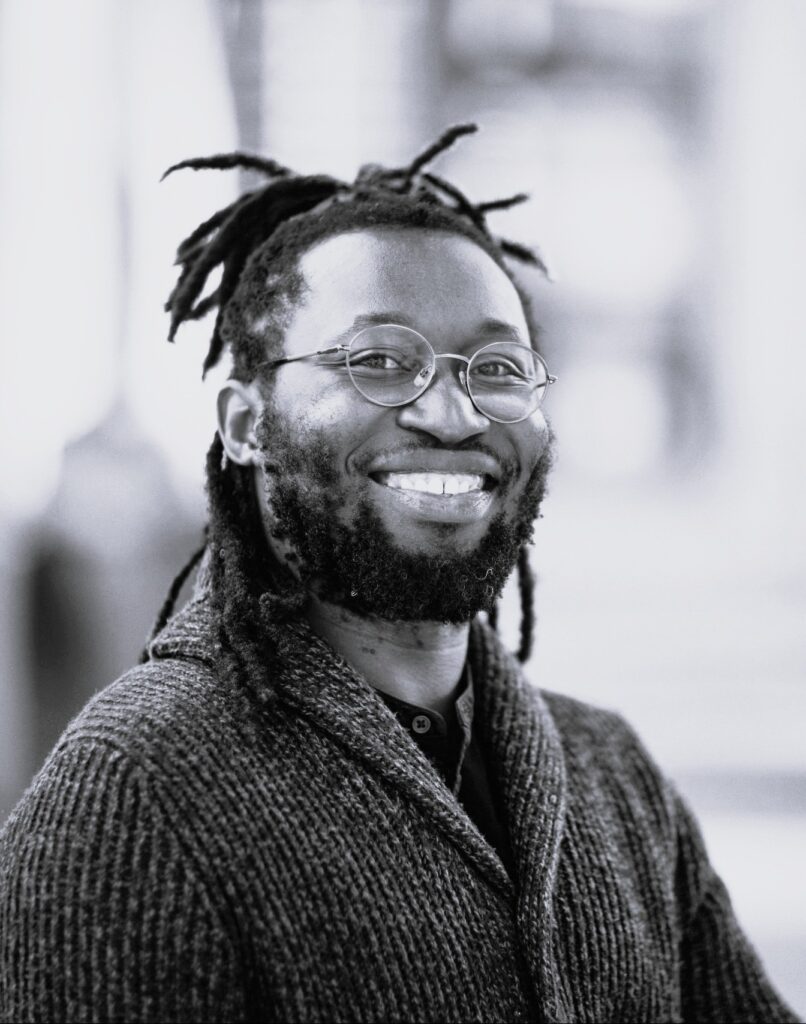Lennon Mhishi

Lennon Mhishi é antropólogo e investigador interdisciplinar cujo trabalho articula música, vida social e expressões criativas africanas e diaspóricas, com especial interesse nas interseções entre museus, coleções coloniais, arte contemporânea, pós-escravatura e colonialismo, bem como nas dinâmicas contemporâneas de exploração, trabalho forçado e direitos humanos em contextos africanos. Atualmente é Assistant Professor de Antropologia na University of British Columbia (desde 2025), depois de uma notável trajetória de investigação e curadoria em instituições de referência internacionais.
Entre 2021 e 2025 foi investigador no Pitt Rivers Museum da Universidade de Oxford, no âmbito do projeto Reconnecting “Objects”: Epistemic Plurality and Transformative Practices in and Beyond Museums, financiado pela Volkswagen Stiftung, que promoveu colaborações entre Oxford, Cidade do Cabo, Dacar, Dschang e Berlim. Nesse contexto, co-curou exposições e performances centradas em música, som e reconexão de patrimónios coloniais com as suas comunidades de origem.
Antes disso, foi Investigador Pós-doutorado na Universidade de Liverpool (2017–2021), integrando a Antislavery Knowledge Network, onde coordenou estratégias comunitárias para enfrentar formas contemporâneas de exploração através das artes e do património. Liderou projetos criativos e de comunicação intercultural, incluindo o podcast Creative Paths to Freedom, e participou em debates públicos sobre escravatura, migração e desigualdade racial.
É membro da rede Black Health and Humanities da Universidade de Bristol, integrando um esforço interdisciplinar para compreender como o pensamento e a criatividade negra respondem a desigualdades históricas na saúde e no conhecimento científico. Foi também MuseumsLab Fellow (2023) e Early Career Fellow no Skoll Centre for Social Entrepreneurship da Universidade de Oxford (2023–2024), onde investigou modelos sustentáveis de liderança comunitária e transformação institucional nos museus.
Detém um PhD em Antropologia e Sociologia pela School of Oriental and African Studies (SOAS), Universidade de Londres (2017), com a tese Songs of Migration, sobre música, identidade e vida diaspórica entre zimbabueanos em Londres. É também mestre pela Monash University (Austrália, 2013) e pela Universidade do Zimbabué (2009), onde iniciou a carreira docente.
A sua produção académica inclui artigos em revistas como Global Policy Journal e The Republic, além de capítulos em volumes dedicados à biopolítica, ao racismo médico e à memória colonial. Desenvolveu ainda projetos de investigação e curadoria como Nursing Nostalgia e Prisoners of Love (2023), que exploram o papel dos arquivos, das artes e das comunidades na preservação de memórias silenciadas.
Como conferencista e curador, tem colaborado com museus e instituições culturais na Europa, África e América, incluindo o Berlin Biennale, o Museu Nacional do Quénia, a Universidade do Gana e o Museu de Brooklyn. Em paralelo, atua como membro do conselho do Center for Victims of Torture (2023–2026), reforçando o compromisso entre pesquisa, ética e justiça social.
A obra e o percurso de Lennon Mhishi distinguem-se pela capacidade de articular investigação académica, prática artística e engajamento comunitário, propondo formas inovadoras de pensar a restituição, a memória e a transformação das instituições culturais num contexto pós-colonial.
Lennon Mhishi is an anthropologist and interdisciplinary researcher whose work connects African and diasporic music, social life, and creative expression, with a particular interest in the intersections between museums, colonial collections, contemporary art, post-slavery and colonialism, as well as the contemporary dynamics of exploitation, forced labor, and human rights in African contexts. He is currently an Assistant Professor of Anthropology at the University of British Columbia (since 2025), following a distinguished trajectory of research and curatorial practice in leading international institutions.
Between 2021 and 2025, he was a researcher at the Pitt Rivers Museum, University of Oxford, as part of the project Reconnecting “Objects”: Epistemic Plurality and Transformative Practices in and Beyond Museums, funded by the Volkswagen Stiftung. This initiative fostered collaborations between Oxford, Cape Town, Dakar, Dschang, and Berlin. Within this framework, he co-curated exhibitions and performances centered on music, sound, and the reconnection of colonial heritage with its source communities.
Prior to that, he was a Postdoctoral Research Fellow at the University of Liverpool (2017–2021), working within the Antislavery Knowledge Network, where he coordinated community-based strategies to address contemporary forms of exploitation through the arts and heritage. He led creative and intercultural communication projects, including the podcast Creative Paths to Freedom, and participated in public debates on slavery, migration, and racial inequality.
He is a member of the Black Health and Humanities network at the University of Bristol, contributing to an interdisciplinary effort to understand how Black thought and creativity respond to historical inequities in health and scientific knowledge. He was also a MuseumsLab Fellow (2023) and an Early Career Fellow at the Skoll Centre for Social Entrepreneurship, University of Oxford (2023–2024), where he explored sustainable models of community leadership and institutional transformation in museums.
Mhishi holds a PhD in Anthropology and Sociology from the School of Oriental and African Studies (SOAS), University of London (2017), with the dissertation Songs of Migration, focused on music, identity, and diasporic life among Zimbabweans in London. He also holds master’s degrees from Monash University (Australia, 2013) and the University of Zimbabwe (2009), where he began his academic career.
His academic work includes publications in journals such as Global Policy Journal and The Republic, as well as chapters in edited volumes on biopolitics, medical racism, and colonial memory. He has also developed research and curatorial projects such as Nursing Nostalgia and Prisoners of Love (2023), which explore the role of archives, the arts, and communities in preserving silenced memories.
As a lecturer and curator, he has collaborated with museums and cultural institutions across Europe, Africa, and the Americas, including the Berlin Biennale, the National Museum of Kenya, the University of Ghana, and the Brooklyn Museum. In parallel, he serves as a board member of the Center for Victims of Torture (2023–2026), reinforcing the commitment between research, ethics, and social justice.
Mhishi’s work and trajectory stand out for their ability to interweave academic research, artistic practice, and community engagement, proposing innovative ways of rethinking restitution, memory, and the transformation of cultural institutions in a postcolonial context.
